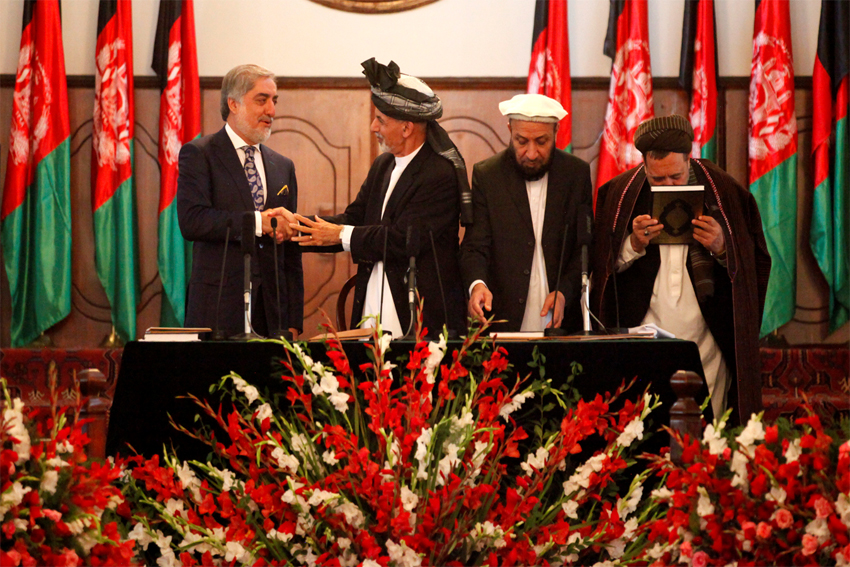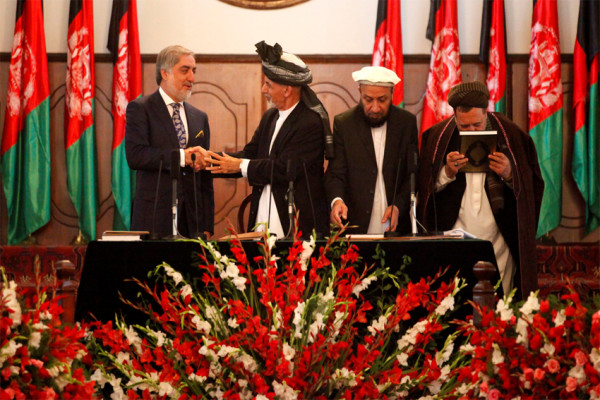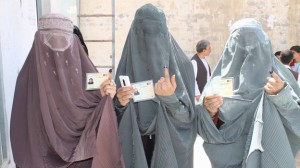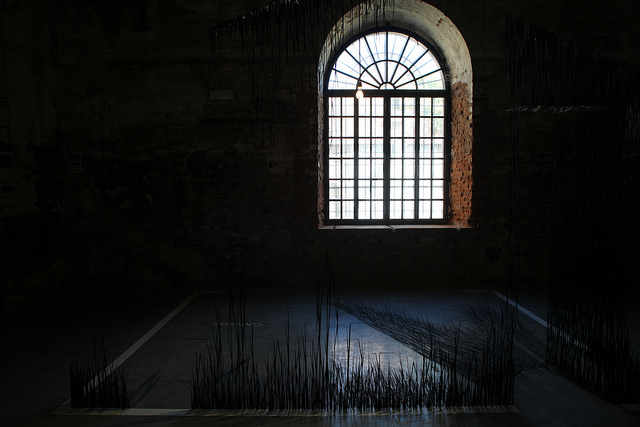Ashraf Ghani and Abdullah Abdullah were sworn in as Afghanistan’s new leaders on September 29, 2014, ending months of unrest over the disputed election. The ceremony marks the first peaceful transition of power, a rarity in a nation beset by decades of war.
Former finance minister Ashraf Ghani was inaugurated as the country’s new president, retaining authority as commander in chief of the armed forces, and the power to make strategic decisions. Abdullah, duly appointed as the Afghanistan’s chief executive officer, will command considerable influence over both state appointments and the implementation of government policy.
Following months of disagreements over the results of the second round runoff vote on June 14, the feuding Afghan candidates agreed to establish a national unity government as part of a power sharing deal signed into effect on September 21.
Speaking at the presidential palace in Kabul on Monday, the former rivals promised to work together to better Afghanistan’s future. “Our commitment will be fulfilled together as a unified team to create national unity,” Abdullah said in his address.
Background:
Allegations of massive fraud committed during the June 14 vote ignited a political crisis, as both candidates declared victory and threatened to establish parallel governments. The conflict threatened to destabilize the already fragile nation at a time when NATO troops were preparing to withdraw.
While preliminary results from the runoff round showed Ghani in the lead with 56.4% of the vote, the count was immediately rejected by Abdullah’s campaign, which called the election a “coup” against the people. Abdullah, pointing to a suspicious surge in Pashtun voters between the first and second rounds, accused the Independent Election Commission of interference, arguing that massive ballot stuffing had occurred.
Reaction:
While the power-sharing arrangement comes as a relief to the people of Afghanistan, who have grown increasingly frustrated with their country’s protracted political uncertainty, the creation of an extra-constitutional position (CEO), according to Michael McBride, undermines the legitimacy of the political process and represents an immense setback to Afghanistan’s democratic transition.
The Afghan people who defied the Taliban and risked their lives to go to the polls deserved a clear and decisive result, one that reflected the will of the people, not the international community. While the agreement has resolved the political crisis for the time being, the backroom deal undercuts the basic premise of democracy: “An Afghan solution to an Afghan problem.” According to election official Halim Fadai, the agreement “tells the Afghan people that the international community, with their slogans of democracy, have just put another nail in the coffin of democracy in Afghanistan.”
Instead of ushering in an era of electoral transparency, the 2014 presidential election circumvented the established democratic procedures and Afghan constitution for the benefits of expediency. The specifics of the deal, despite making sweeping changes to how the country is governed, have not been released, nor has the total number of votes each candidate received. Far from representing an optimistic development for the future, some believe that the recent elections, and their subsequent political wrangling, signify the continuation of the same corrupt power structures that have dominated the landscape of Afghanistan for many years.
There are some however, who disagree. While proponents of the deal acknowledge its shortcomings, they maintain that the decision provided the only practical solution to the escalating conflict, and might be better suited to Afghanistan’s current social and political conditions. Former Afghan Ambassador to Canada, Omar Samad believes the new structure will help move the country away from the overly concentrated presidential system, as experienced under Hamid Karzai. While a parliamentary system may well be better suited for Afghanistan, whole changes in government structure to appease the losing side of a presidential election set a dangerous precedent for the future.
Implications:
Despite its shortcomings, the news comes as a relief to NATO and the United States. On Monday, after almost a year of delay under Afghanistan’s previous administration, the newly established government signed a crucial security agreement, paving the way for roughly 12,000 foreign troops to remain the country after year’s end.
The agreement is the first major act of the administration and provides a much-needed framework for a continued US presence in the region.






